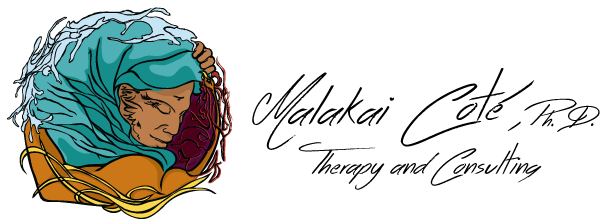Everyone resides within a culture. Most consistently, folks understand culture as being a part of racial or ethnic groups. Culture; however, can be thought of more broadly to not only encompass ethnicity, but also other social locations. There are family cultures, academic cultures, workplace cultures, culture of femininities and masculinities, religious cultures, and so on.
Culture is:
- Human beliefs and values
- People’s attitudes and expectations
- Social customs
- Symbols and social practices
Cultural ways of being influence how we see ourselves in the world and also how we engage with others. Culture influences our expectations about how person-to-person interactions will occur. Additionally, culture influences how we understand health and healing. A brief and simple example: When people choose to visit a medical doctor when physically ill. Based on people's culture, some individuals choose to interface with medical professionals, while other folks may choose other options such as prayer, homeopathic remedies, fasting, etc. There are diverse cultural expectations related to health and healing that dictate how people understand health, illness, and what works to address these issues.
Cultural ways of being are also present within psychotherapy. The culture of traditional psychotherapy includes the social custom of people going to a therapy office, sitting in a chair or on a couch for 45 - 60 minutes once per week, and talking about what is going on in their lives with a skilled professional. This social arrangement assumes trust, vulnerability, and the possibility of change. The foundations of psychotherapy have been rooted in Western psychology that typically emphasizes individualism and self-development. It is believed that if you talk with a professional trained in addressing mental health concerns, then there is hope for an individual to improve or feel better. Acknowledging the role of culture in psychotherapy is important because it helps to frame specific expectations and customs within the psychotherapy experience.
There are also expansive ways and approaches in psychotherapy that take into account varying cultural ways of being and understandings of health and healing. For example, Afrocentric approaches to therapy emphasize authenticity, balance, interconnectedness, and cultural awareness (Gregory & Harper, 2001). Many of these approaches address the relationship between the mind, body, and spirit. Afrocentric approaches to psychotherapy move beyond the Rogerian notion of “self-actualization” to a broader understanding of collective and community healing and becoming.
"I am because we are."
I find that these approaches are helpful for some individuals because the approach locates people within an ethos of interconnection and shared humanity. There is opportunity to feel a part of something larger and to develop within a context of care, warmth, and collaboration. This approach also does not shy away from the role that social oppression and trauma plays in impacting people’s lives.
Acknowledging the role of culture in people's lives takes into account real cultural experiences, meaning that as a psychologist I do not assume that everyone has the same life experience and narrative even if folks share certain aspects of identity. Not all men are the same. Not all African American men from Sacramento are the same. Not all gay folks are the same. This stance requires an openness to let people explore and be all of who they are. These experiences can be directly addressed in psychotherapy where people can bring all of themselves including diverse beliefs, values, and experiences all within a context of care and respect. By working with a therapist who provides space and acknowledgement of your unique culture and values, there is greater opportunity to be heard, validated, and have a strong foundation to engage in relevant change processes.
